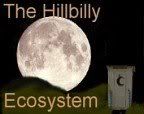What people need to understand is that digital photography should not be thought of as a replacement for film, but only as an alternate choice or a supplement to film. Let's look at some of the arguments of the misguided film vs digital debate:
Digital:
Pros:
- Instant gratification - you can see the results almost instantly after shooting. Great if you need to change things around or do a reshoot without having to schedule a return trip.
- The media storage devices such as Compact Flash cards, XD cards, SD cards, Microdrives, etc. are not fogged by X-Rays like when your items are x-rayed at the airport.
- Digital media can be stored in heat and cold without much worry of it being affected adversely.
- Can be direct downloaded to a computer for post processing, or to a compatible printer for direct printing.
- Exposure settings can be adjusted later if shot in RAW format.
Cons:
- Rapidly changing technology obsoletes digital storage formats about once a decade, and digital camera technology is upgraded every 2 or 3 years, an expensive way to go if insist on all the latest gear to keep up with the Jones'.
- Equipment can easily cost 3 pr 4 times that of it's 35mm counterpart.
- Digital is still a relatively new and ever changing format.
- Inkjet prints don't last as long as film prints and can be expensive to print.
- Common archival media such as CD's and DVD's don't last as long as first though. Archived discs can start breaking down in as little as 5 years.
- Hundreds of images stored on a single disc can be destroyed if disc is scratched or broken.
- It takes a heck of a lot of megapixels to equal 35mm film, and a whole lot more to equal that of medium and large format films.
Film:
Pros:
- It's a time tested and proven technology that has lasted for lifetimes.
- Modern film emulsions are the best that they've ever been.
- Film can be archived for well over a hundred year with very little concern except for slight fading or color shifts.
- If one slide or frame of film is scratched or torn, the other images remain unaffected.
- Minilab prints are relatively inexpensive.
- Can be digitized by scanning the media into a computer.
Cons:
- Film must be developed before you can see the results, no instant gratification.
- Carrying a lot of film can take up valuable storage space.
- Undeveloped film breaks down with age or when subjected to excessive heat.
- Processing incorrectly can permanently ruin irreplaceable shots.
- Archived sleeves of negatives, prints, and slides can take up considerable amounts of space.
- Some film processing chemicals can be carcinogenic.
As you can see, both offer technical advantages and disadvantages, with the slight overall edge leaning towards digital, however, the price advantage goes to film quite easily.
Film can make you a better photographer. You are more likely to take care properly composing your shots instead of just blasting away in digital. You will learn to look for details quicker shooting with film so that inconvenient reshoots won't have to be scheduled. Thinking about the setup of each picture before pressing the shutter release will do wonders for your photography skills. This is where the instant gratification of digital can become a roadblock to your learing.
On the otherhand, instant previews on the LCD of a DSLR camera are too small to see the minor details that can make or break a photo, though larger errors can be seen immediately and be reshot almost instantly.
Sharing pictures on stable film prints that can be passed around from person to person can be more meaningful that trying to crowd a bunch of people around a small monitor for viewing. Film just has a warmer, more personal feeling because it's something that can be felt and touched, not just a bunch of binary numbers rattling around inside a computer's circuitry.
In 50 years, will your grandchildren have the motivation to find old outdated drives compatible with your old digital storage media so that they can view your old pictures? Let's face it, slide projectors have been around for decades basically unchanged. Look at computer storage, the 5" floppy went the way of the Dodo bird, replaced by the 3.5" floppy which most new computer don't even come installed with anymore. CD's are being replaced with DVD's, and now we have all sorts of storage devices such as zip-disks, external drives of all types, and who knows when they'll be outmoded with something newer and better. You can bet it won't be long!
In those same 50 years, if your grandchildren find all your old film archives, they would be much more likely to hold the negatives or slides up to the light, peaking curiosity and bringing a closer look. Old pictures in a box are much more convenient to look at on the spot, whereas an old media card might be accidentally erased or shoved away to be viewed at a later date only to be forgotten about.
Film negatives are, for the most part, what you see is what you get. It's hard to retouch an original negative or slide! Digital files can be easily modified in photo-editing programs with such skill and precision that it's hard to tell the fake from the original. That's bad news for legal purposes, such as evidence documentation. Nikon seems to have come out with a way to solve that problem, so that the the original image is authenticated instantly. However, like any computer program, I'm sure the techno-geeks will have a way to circumvent the image authenticity checks and make a fake image appear as an original to the authentification software.
With this in mind, we should not write off film as an outdated format quite yet. Film still has a few important advantages in it's corner. Digital is a wonderful media choice too for many things. Both have distinct advantages and disadvantages. Let's not prematurely kill film when it can work side-by-side with digital to make the world of photography all that much more exciting!






